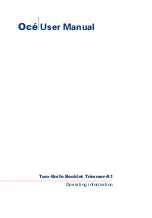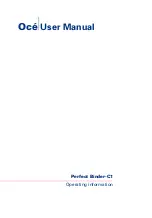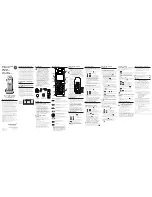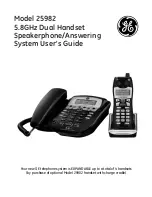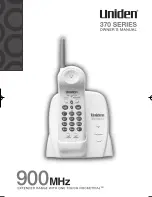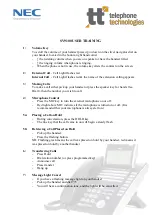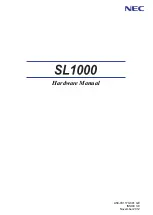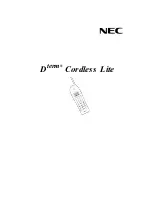
Section 3: Features
48
◆
Section 3: Features
DS1000/2000 Product Description
There are four types of Circular Hunting:
●
Ring No Answer Trunk (Option 1)
Hunting will occur for unanswered trunk calls. Hunting will not occur for unanswered ringing
Intercom calls or while the member extension is busy.
●
Busy/Ring No Answer Trunk (Option 2)
Hunting will occur for unanswered trunk calls and for trunk calls to the member extension
while it is busy. Hunting will not occur for ringing Intercom calls.
●
Busy/Ring No Answer All Calls (Option 3)
Hunting will occur for unanswered trunk and ringing Intercom calls, and for trunk and ringing
Intercom calls to the member extension while it is busy.
●
Busy Trunk (Option 4)
Hunting will occur for trunk calls to the member extension while it is busy. Hunting will not
occur for unanswered trunk and ringing Intercom calls.
Terminal Hunting
A Terminal Hunting group consists of a group of extensions programmed into a Terminal Hunting
list. A call unanswered at a member extension rings the next extension in the programmed list. The
call will cycle through the group once, until it reaches the last extension in the list. Unlike Circular
Hunting, the call will not cycle back to the top of the hunt list. Depending on the hunt type (see
below), Terminal Hunting will occur for transferred trunk calls, DILs to a hunt group member, and
ringing Intercom calls. Hunting does not occur for Key Ring and Ring Group calls.
Just like Circular Hunting, there are four types of Terminal Hunting:
●
Ring No Answer Trunk (Option 1)
Hunting will occur for unanswered trunk calls. Hunting will not occur for unanswered ringing
Intercom calls or while the member extension is busy.
●
Busy/Ring No Answer Trunk (Option 2)
Hunting will occur for unanswered trunk calls and for trunk calls to the member extension
while it is busy. Hunting will not occur for ringing Intercom calls.
●
Busy/Ring No Answer All Calls (Option 3)
Hunting will occur for unanswered trunk and ringing Intercom calls, and for trunk and ringing
Intercom calls to the member extension while it is busy.
●
Busy Trunk (Option 4)
Hunting will occur for trunk calls to the member extension while it is busy. Hunting will not
occur for unanswered trunk and ringing Intercom calls.
Uniform Call Distribution (UCD) Hunting
Like Circular and Terminal Hunting, a UCD Hunting group also consists of a group of extensions
programmed into a hunt list. The system routes calls into a UCD group according to the frequency
of use of the member extensions. The first extension rung is the member that has been idle the long-
est. The last extension rung is the member that has been idle the shortest.
Each member of the group is additionally associated with a UCD Master Extension Number. To
activate UCD hunting, an incoming call must route to the UCD master number. This is done by
placing an Intercom call to the master number, transferring a call to the master number or setting up
a DIL to the master number. When all members of the UCD Hunting group are busy, the call can
route to the programmed UCD Overflow destination.
A UCD Hunting group member can dial a code to temporarily remove themselves from their UCD
group. They no longer have to put their phone in DND to stop getting UCD group calls.































